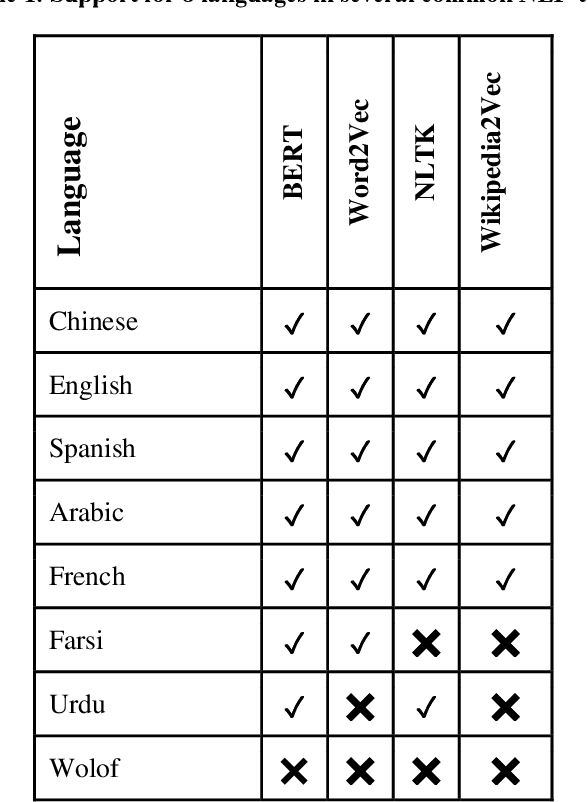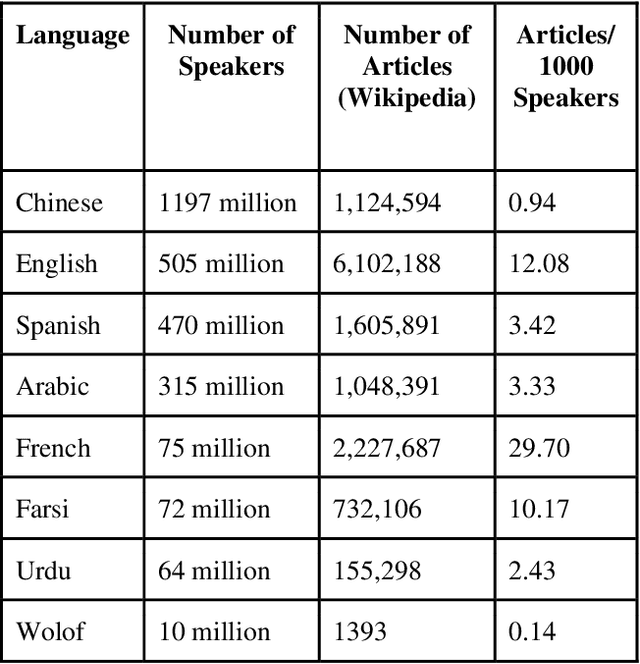Is Machine Learning Speaking my Language? A Critical Look at the NLP-Pipeline Across 8 Human Languages
Paper and Code
Jul 11, 2020

Natural Language Processing (NLP) is increasingly used as a key ingredient in critical decision-making systems such as resume parsers used in sorting a list of job candidates. NLP systems often ingest large corpora of human text, attempting to learn from past human behavior and decisions in order to produce systems that will make recommendations about our future world. Over 7000 human languages are being spoken today and the typical NLP pipeline underrepresents speakers of most of them while amplifying the voices of speakers of other languages. In this paper, a team including speakers of 8 languages - English, Chinese, Urdu, Farsi, Arabic, French, Spanish, and Wolof - takes a critical look at the typical NLP pipeline and how even when a language is technically supported, substantial caveats remain to prevent full participation. Despite huge and admirable investments in multilingual support in many tools and resources, we are still making NLP-guided decisions that systematically and dramatically underrepresent the voices of much of the world.
 Add to Chrome
Add to Chrome Add to Firefox
Add to Firefox Add to Edge
Add to Edge